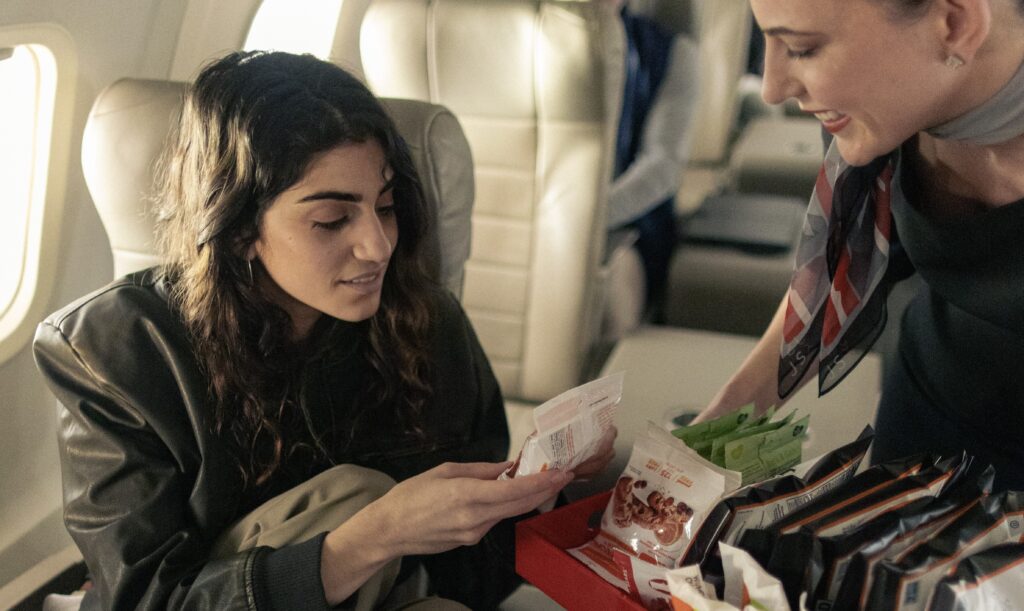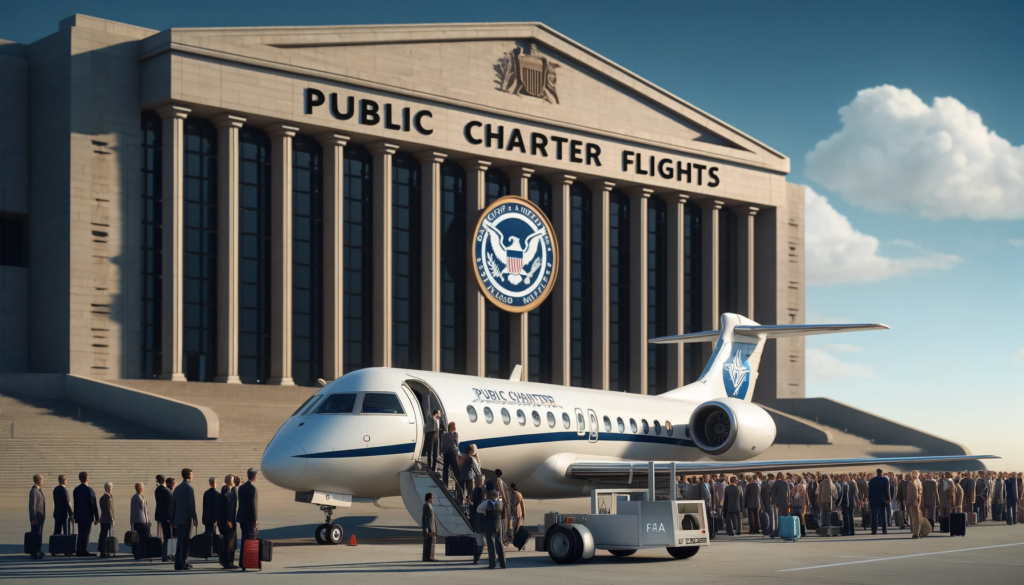Fighting the FAA’s Unnecessary Attack on Improved Air Travel Options
Share

The Airline Passenger Experience Association (APEX), as its name states, consistently stands for the advancement of passenger experience and advocates for diverse and innovative travel solutions. On June 17, 2024, the Federal Aviation Administration (FAA) proposed amendments to public charter flight safety regulations. It claims this will align safety standards for public charter flights with those of scheduled airlines in a bureaucratic move designed to hide the true intent, which involves redefining “scheduled,” “on demand,” and “supplemental” operations. Additionally, it will explore new safety standards for small community and rural air services, considering a new operating authority for Part 135 operations in 10-30 seat aircraft.
These changes lack evidence of the claimed safety risks and instead threaten to eliminate innovative travel options that have proven safe and beneficial for millions of US air travelers. APEX stands with its members when governmental regulations unjustly reduce passenger experience options under false pretenses.
”APEX stands with its members when governmental regulations unjustly reduce passenger experience options under false pretenses.”
The move is reminiscent of historical US industry interventions aimed specifically at stifling competition. It harks back to the origins of Southwest Airlines, which famously exploited a legal loophole to operate intrastate flights within Texas, thereby avoiding federal regulation and fostering industry-leading competition as a low-cost carrier. Now, the FAA’s actions threaten to undermine new air travel options, potentially dismantling innovative air travel possibilities that have significantly benefited passengers.

The Irony of History Repeating Itself in Dallas
Southwest Airlines initially circumvented federal regulations by operating exclusively within Texas when it launched in 1971, with a focus on serving underutilized airports in the state. This strategic move allowed Southwest to avoid the Civil Aeronautics Board’s restrictions and fostered competition, lowering airfares across the state.
Over time, Southwest became a model of success and efficiency, reshaping the aviation landscape. Until a decade ago, federal regulation in the Wright Amendment continuously prevented Southwest Airlines from serving destinations outside of nearby states from Love Field in Dallas. Thankfully, those burdens have now been released. Fast-forward to today, and the FAA once again appears to be using its regulatory power to target a new sector within the aviation industry under the guise of regulatory compliance.

The FAA’s Questionable Safety Justification
The FAA’s notice of intent claims that the rapid growth of public charter flights under Part 380 poses an increased safety risk – even though they do not go on to cite them. According to the FAA, these operations have become “essentially indistinguishable” from scheduled airline services, necessitating a regulatory overhaul.
“The U.S. Department of Transportation (DOT) already amply regulates public charter flights . . . [as] operators must provide clear information about cancellation policies, refunds, and major changes to flight schedules or services.”
However, this safety justification lacks evidence or safety incidents that would merit regulatory changes. Public charter flights already adhere to strict Part 135 regulations, ensuring high safety standards that have worked effectively for decades. The proposed changes appear redundant and burdensome, designed more to stifle competition than to enhance safety.

The US Department of Transportation (DOT) already amply regulates public charter flights through 14 CFR Part 380. These regulations require any entity arranging public charter flights to submit a detailed charter prospectus for DOT approval before selling seats to the public.
This prospectus includes information on the proposed charter program, flight schedules and operator-participant contracts, ensuring transparency and consumer protection. Public charter operators must provide clear information about cancellation policies, refunds and major changes to flight schedules or services. Additionally, the DOT’s tarmac delay rule applies to public charter flights, ensuring passengers are not unduly delayed on the ground.
Economic Motives Behind the Regulations
The timing and nature of these proposed amendments suggest economic motives. The FAA’s actions seem aimed at curbing the competitive advantages of public charter services for passengers that are willing to pay more for an enhanced passenger experience. These innovative services have provided passengers with more personalized, efficient and affordable travel options, which challenge traditional airlines.
“APEX member JSX, as the central example that would be negatively affected by this FAA attack, has revolutionized air travel by offering a superior passenger experience.”
APEX member JSX, as the central example that would be negatively affected by this FAA attack, has revolutionized air travel by offering a superior passenger experience. The FAA’s proposed regulations threaten to dismantle such innovations, reducing consumer choice and potentially increasing travel costs.

Industry Response and Potential Impact
Industry leaders have expressed significant concerns regarding the FAA’s new proposal. The National Air Transportation Association (NATA) argues that Part 135 operators already maintain exemplary safety records, and additional regulations could unjustifiably hinder their operations. Even commercial airline champion Airlines for America (A4A) has remained blissfully neutral on the issue.
“It remains crucial that these regulations do not inadvertently stifle the industry’s capacity to innovate and provide airline passengers with the diverse choices and broader experiences they rightfully expect and deserve.”
APEX/IFSA Board of Governors
In September 2023, all airlines on the APEX/IFSA Board of Governors voted unanimously to approve the following focus: “Empowering Airlines: Expanding Services Beyond Regulatory Constraints.” We agreed, “It remains imperative that airlines retain the autonomy to curate and offer a more diverse range of products, flights, and services that cater directly to the evolving needs of their passengers. Recent regulatory changes have raised concerns, particularly as they seem to disproportionately reduce access to passenger service variety, connectivity, code sharing, airport access, and innovations. Such constraints not only hinder the introduction of passenger-centric innovations but also curtail the potential for airlines to introduce bespoke in-flight experiences. It remains crucial that these regulations do not inadvertently stifle the industry’s capacity to innovate and provide airline passengers with the diverse choices and broader experiences they rightfully expect and deserve.”

Benefits to US Commercial Airlines and Their Pilot Unions
Paradoxically, commercial airlines and their unions benefit significantly from the current Part 135 model. These operations provide an ideal training ground for aspiring pilots, allowing them to accumulate the 1,500 flight hours required for commercial airline service. This setup ensures a steady flow of new pilots into the commercial sector, addressing the ongoing challenge of pilot shortages. These pilots will undoubtedly be joining the very commercial pilot unions that are now advocating to limit their ability to gain required flight hours.
Additionally, retired commercial airline captains, who are forced to retire at age 65 but meet stringent FAA health guidelines, can find employment as pilots in command in Part 135 operations. This opportunity allows them to continue leveraging their extensive experience, benefiting both themselves and the aviation industry with their wealth of knowledge and skills.
Alex Wilcox, CEO of JSX, has been vocal in defending providing a higher-level of passenger experience in his company’s business model. “JSX has a flawless safety record and far exceeds applicable safety, security, and regulatory standards. By any measure, JSX has a better safety, security, and operating record than the other airlines,” Wilcox stated. He has emphasized that the proposed regulations stem from a desire to eliminate competition from rather than genuine safety concerns.
A full three years ago, The Points Guy lauded the exceptional travel experience innovation provided by JSX, likening it to the exclusivity of private flying at a remarkably accessible starting price of $89 per seat. It highlighted JSX’s unique offering of semi-private flights, which combined the convenience and luxury of private aviation with the affordability and efficiency of commercial air travel. With streamlined check-in processes, spacious seating, and personalized service, JSX delivered a superior alternative to traditional airlines, making private flying experiences more attainable for the average traveler. This blend of comfort, cost-effectiveness, and convenience underscored JSX’s innovative approach to air travel, setting a new standard in the industry.

Advocating for Balanced Regulation
The aviation industry must advocate for a balanced approach that prioritizes both safety and innovation. While maintaining high safety standards is crucial, it is equally important to support the growth of efficient, consumer-friendly travel solutions. The FAA’s proposed amendments, under the guise of safety, should not become a tool to suppress competition and limit passenger choices.
As stakeholders navigate these regulatory changes, it is essential to challenge unfounded safety claims and highlight the economic motives behind these amendments.

Passenger-Centric Innovations Boost Our Industry
The FAA’s proposed amendments to public charter flight regulations appear to be an unnecessary and economically motivated overreach. As widely publicized this year, the FAA has genuine safety issues to review that require their focus and presence. In this instance, the lack of clear evidence supporting the claimed safety risks undermines the FAA’s position. Instead, these changes threaten to eliminate innovative travel options that have proven safe and beneficial to passengers. As the industry navigates these developments, it is crucial for stakeholders to advocate for a balanced approach that prioritizes both safety and the continued growth of efficient, consumer-friendly travel solutions.
“APEX stands with its members when governmental regulations unjustly reduce passenger experience options.”
APEX stands with its members when governmental regulations unjustly reduce passenger experience options. If APEX existed in 1971, then we would have proudly stood advocating for the creation of Southwest Airlines as America’s first low-cost carrier. In 2024, we fervently stand at APEX for continuous innovation and evolution in our incredible industry without onerous new government regulations designed to purposefully eliminate air travel innovations.
Just as Southwest Airlines had every right to be America’s first low cost airline in 1971, JSX today has an equal right to continue offering a high-end private jet like air travel experience for those willing to pay a price premium.


